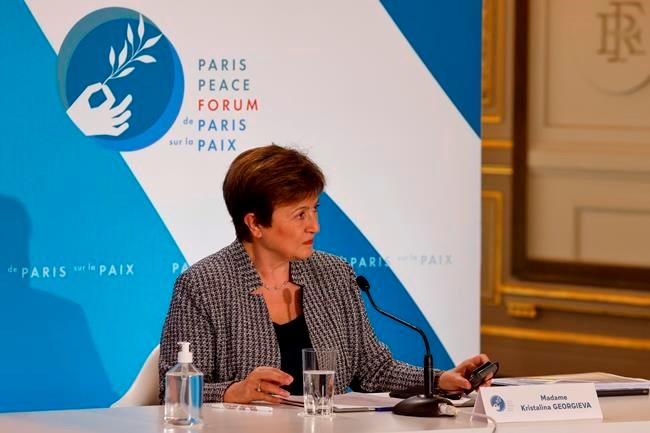WASHINGTON — The rollout of COVID-19 vaccines and vast sums of government aid will accelerate global economic growth to a record high this year in a powerful rebound from the pandemic recession, the International Monetary Fund says in its latest forecast.
The 190-country lending agency said Tuesday that it expects the world economy to expand 6% in 2021, up from the 5.5% it had forecast in January. It would be the fastest expansion for the global economy in IMF records dating back to 1980.
In 2022, the IMF predicts, international economic growth will decelerate to a still strong 4.4%, up from its January forecast of 4.2%.
“A way out of this health and economic crisis is increasingly visible,’’ IMF chief economist Gita Gopinath told reporters.
The agency’s economists now estimate that the global economy shrank 3.3% in 2020 after the devastating recession that followed the coronavirus' eruption across the world early last spring. That is the worst annual figure in the IMF's database, though not as severe as the 3.5% drop it had estimated three months ago. Without $16 trillion in global government aid that helped sustain companies and consumers during COVID-19 lockdowns, IMF forecasters say, last year’s downturn could have been three times worse.
The U.S. economy, the world’s biggest, is now forecast to expand 6.4% in 2021 — its fastest growth since 1984 — and 3.5% in 2022. The U.S. growth is being supported by President Joe Biden’s $1.9 trillion relief package, while an acceleration in the administering of vaccines is beginning to let Americans return to restaurants, bars, shops and airports in larger numbers.
The world's second-largest economy, China, which imposed a draconian COVID-19 clampdown a year ago and got a head start on an economic recovery, will record 8.4% growth this year and 5.6% in 2022, the IMF estimates.
The monetary fund expects the 19 countries that share the euro currency to collectively expand 4.4% this year and 3.8% in 2022. Japan is expected to register 3.3% growth this year and 2.5% next year.
Gopinath warned that the economic recovery is likely to be uneven. The rebound is expected to be slower in poor countries that can't afford massive government stimulus and in those dependent on tourism. Economic damage from the health crisis is “reversing gains in poverty reduction'' and last year increased the ranks of extreme poor by 95 million compared with pre-pandemic projections.
She also predicted that “many of the jobs lost are unlikely to return'' — because of trends accelerated by the pandemic, such as stepped-up automation and a shift toward e-commerce and away from brick-and-mortar stores.
A faster recovery in the United States means U.S. interest rates could rise “in unexpected ways,'' rattling financial markets and pulling investment out of hard-hit, debt-ridden emerging markets.
In the IMF's estimation, the global rebound will gradually lose momentum and return to pre-COVID levels of just above 3% growth. Countries will again encounter the obstacles they faced before the pandemic, including aging work forces in most rich countries and in China.
Paul Wiseman, The Associated Press




